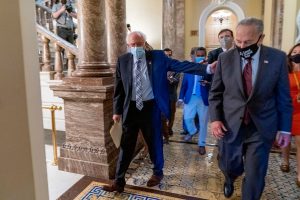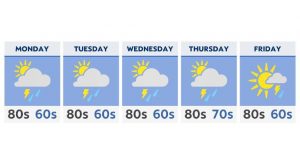In his first hours as president, Joe Biden plans to take executive action to roll back some of the most controversial decisions of his predecessor and to address the raging coronavirus pandemic, his incoming chief of staff said Saturday.
What You Need To Know
- President-elect Joe Biden plans to take executive action to roll back some of the most controversial decisions of President Donald Trump and to address the raging coronavirus pandemic shortly after being sworn in
- His incoming Chief of Staff Ron Klain outlined these plans in a memo
- On Wednesday, following his inauguration, Biden will end Trump’s restriction on immigration to the U.S. from some Muslim-majority countries, move to rejoin the Paris climate accord and mandate mask-wearing on federal property and during interstate travel
- On Thursday, Klain said Biden would sign orders related to the COVID-19 outbreak aimed at reopening schools and businesses and expanding virus testing
- Friday will see action on providing economic relief to those suffering the economic costs of the pandemic
The opening salvo would herald a 10-day blitz of executive actions as Biden seeks to act swiftly to redirect the country in the wake of Donald Trump’s presidency without waiting for Congress.
On Wednesday, following his inauguration, Biden will end Trump’s restriction on immigration to the U.S. from some Muslim-majority countries, move to rejoin the Paris climate accord and mandate mask-wearing on federal property and during interstate travel. Those are among roughly a dozen actions Biden will take on his first day in the White House, his incoming chief of staff, Ron Klain, said in a memo to senior staff.
Other actions include extending the pause on student loan payments and actions meant to prevent evictions and foreclosures for those struggling during the pandemic.
“These executive actions will deliver relief to the millions of Americans that are struggling in the face of these crises,” Klain said in the memo. “President-elect Biden will take action — not just to reverse the gravest damages of the Trump administration — but also to start moving our country forward.”
“Full achievement” of Biden’s goals will require Congress to act, Klain said, including the $1.9 trillion virus relief bill he outlined on Thursday. Klain said that Biden would also propose a comprehensive immigration reform bill to lawmakers on his first day in office.
The next day, Thursday, Klain said Biden would sign orders related to the COVID-19 outbreak aimed at reopening schools and businesses and expanding virus testing. The following day, Friday, will see action on providing economic relief to those suffering the economic costs of the pandemic.
In the following week, Klain said, Biden would take additional actions relating to criminal justice reform, climate change and immigration — including a directive to speed the reuniting of families separated at the U.S.-Mexico border under Trump’s policies.
More actions will be added, Klain said, once they clear legal review.
Incoming presidents traditionally move swiftly to sign an array of executive actions when they take office. Trump did the same, but he found many of his orders challenged and even rejected by courts.
Klain maintained that Biden should not suffer similar issues, saying “the legal theory behind them is well-founded and represents a restoration of an appropriate, constitutional role for the President.”
The Associated Press contributed to this report.




